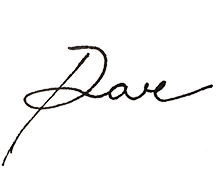I WILL REMEMBER 2019 as the year that I learned to love again.
2019 is the year that I fell in love with the city of Paris. It was the year that I fell in love with trying 100 new things in 100 days. It was the year that I fell in love with baking — a whim of last winter that has since evolved into today’s carby obsession. It was the year that I fell in love with running my business.
I will remember 2019 as the year I emerged from a thorough heartbreak — a dysfunctional relationship, replete with chronic lies and manipulation, studded with jaw-dropping stories that I have not shared with you, or many, or any — and, emerged from it stronger than ever.
Inside and out, 2019 has been a year in which I have learned to love again — to love much, love many, and love widely.
Of all the things, people, activities, and moments in which I fell in love in 2019, I will also remember this year as the year in which I first, and finally, fell in love with coaching.
…which is a curious thing, since I have resented and resisted calling myself a “coach” for more than seven years.
The previous and only time that I called myself a “coach” was when I thought that using the title would help me skip my steep, slow learning curve to “get ahead” and “figure out what I was doing” with my life.
As I began to tell you when I wrote to you last, as 2011 was becoming 2012 and my first book was being published — which I had hoped would springboard me into the new chapter of my career that I was dreaming of — the label of “coach” was one of the facades for which I grasped, desperate and hoping that I could lean on it to make a buck when I barely could; that I might actually, genuinely serve and support people with valuable service, rather than just daydreaming about it.
But in 2019?
2019 has been the year that I have fallen in love with coaching.
It has nothing to do with the title.
It’s because I fell in love with the experience of being a coach: existing in a professional role of support, guidance, and mentorship to dozens and dozens of some truly inspiring people.
I have fallen in love with sitting in long stretches of many months with clients — people who are dedicated to their own growth and self-awareness; committed to knowing themselves better and more truly than ever before; fearless to traverse discomfort if it means making the world around them an even-slightly-better place for it.
To give you the best example of what it feels like to enter into space alongside and support the growth, exploration, creativity, and missives of such souls, allow me to introduce you to a couple of them now.
Beatrix from Rhode Island is a yoga teacher, business owner and full-time parent who was coming off the heels of a professional disappointment: no one had signed up for the yoga retreat that she had been planning for months, leaving her to cancel it. She was frustrated, but also saddened. Like many service-minded teachers, all she wanted to do was to serve, help, and give. The no-show felt heart-wrenching. “I don’t know what to do,” she told me. She felt out of options.
In our first coaching session, I sought to find what I suspected was a deeper reason behind her goal to host a sold-out yoga retreat.
“When I got into recovery for alcoholism,” she told me, “Yoga became a real salve to me. I became a true student of myself for the first time. I see retreats as a way to create space for people who are in recovery and want to embrace yoga, mindfulness, and self-reflection in support of their healing journeys.”
“What I hear you describing,” I told her, “is a desire to see people, serve people, and support people who are going through a struggle you’ve endured, yourself. Is there any other way that might you be able to create space for those same people,” I asked her, “Without it depending on the turn-out rate to a 2-day event?”
Beatrix had a revelation.
Hosting a retreat wasn’t her true goal.
The retreat was just one, single, potential expression of a larger, deeper desire. It was an idea. A leaf on the branch of the tree, but not a branch or trunk or root.
Really, Beatrix wanted to support peoples’ journeys in recovery by offering them an intersecting understanding of both recovery and yoga.
Despite being, in her own words, “the farthest thing from a writer,” in less than a year Beatrix wrote a 12,000-word draft of a yoga and recovery workbook full of her own understanding of yogic philosophy, her vulnerable stories from her recovery journey, and reflection and meditation prompts.
Her next step in 2020? Getting it into the hands of the people who need it, retreat or not.
I am so proud of Beatrix for finding, receiving, and acting on her “goal beneath the goal”!
Next, meet Bradley.
Bradley from Boston is a former marketing professional for a global outdoor sports brand, a lover of American literature and an avid hiker who once walked from Boston to New Hampshire on a whim.
Trying to figure out his “next thing” in life, Bradley had started a blog and wanted to help people ditch social pressures and expectations so they could live more authentic lives.
By the time he signed up to coach with me, Bradley was struggling mightily with his writing and publishing goals.
While he had thought writing lots of advice-based blog posts would help him attract life-coaching clients, Bradley felt like he was repelling people, not inviting them in.
“Every time I sit down and write,” he admitted, “I feel preachy and snarky. When I read back what I’ve written, it sounds resentful. Resentful! My tone of voice feels angry with readers, not appreciative of them.” Bradley was confused, unsure of his instincts anymore, and losing the heart to write, at all.
I told Bradley to hit pause on his publishing for a while, and instead, to focus his writing on inward reflection.
In a matter of weeks, Bradley made a discovery. Bradley had fallen under the spell of an unconscious pressure — a twinge of imposter syndrome — to project the image of himself as being a “looked-to expert” or “guru” on his blog.
Bradley’s unintentionally-preachy tone of voice was the result of a subtle fear that he “wasn’t good enough” and needed to “prove himself” to his prospective coaching clients. His writing was revealing an incongruence — an inner-outer misalignment — between his actions and his desires.
“I realize now that I don’t want to tell people what to do,” Bradley told me. “I want to invite them into thinking about things, themselves, and their lives in new ways. Maybe advice essays aren’t the best format for that, after all.”
In 2020, Bradley is committing to shedding the burdensome expectation of being a “guru” and turning his voice toward a new genre — poetry — that Bradley hopes can better express his desire to lead by example and sound like a friend and guide to his readers, not an authority figure.
In 2020, I want you to love what you do, too.
No matter what you choose to do.
Writing or not.
Coaching or not.
Reading this blog or not.
(No offense intended; it’s your attention span, and I respect yours!)
Sometimes, writing is the explicit reason why my coaching clients sign up with me. After all, in the last 11 years, I’ve published 600 stories essays, 180 newsletters, 5 books (and been included in 6 others), while helping to turn nearly three dozen clients into first-time authors.
So, I do know a thing or two.
And yet, 100% of the time with my coaching clients, the writing is ALWAYS a secondary focus of our coaching.
That’s why, in 2020, I’m debuting The Unavoidable Life, a different kind of holistic life coaching that leans on writing for transformative reflective work.
It’s because the true work is the inner work: the inner world, the decision-making, the behavior change, and the spiritual expression of our soul-contents, made manifest in our actions, deeds, and words, daily.
I believe that writing is one of the most effective and efficient tools, vessels, and modalities for exploring the contents of our own inner worlds.
Writing is slow, deliberate, and mindful — a markedly different experience than typing, let alone talking, let alone thinking one of the 60,000 to 80,000 thoughts we are said to have on any given day.
(60,000 to 80,000 thoughts, every single day!)
2019 is the year that I fell in love with coaching because 2019 is the year that I fell in love with the experience of being a coach to others. This is what I am most focused on serving and supporting in 2020.
Even if you don’t write a memoir-styled workbook like Beatrix, or evolve from essay writer to poet like Bradley, I will show you how to embrace journaling as an ongoing practice toward finding clarity, awareness, and deep understanding
Personal writing is the vessel by which we intimately, mindfully converse with our True Selves, and hold space for our innermost desires, fears, dreams, worries, and feelings to emerge.
Paired with deep, slow, meaningful coaching conversations, you will discover that you always have the ability within you to learn to love again.
To love the trying, all over again.
To love the exploration, all over again.
To love the not-knowing, and all of the unsureness — which is the journey of life, itself — all over again.
To learn the growing, discovery, and accomplishment, all over again.
And again, and again, and again.
No, you don’t need a coach.
(Really, you don’t.)
But you do need to shed what does not serve you. You do need to look within, over and over again. You do need to cull, till, and protect your space — space of mind, body, spirit — in order to fall in love with life, with writing, with caring, with serving, with our world, all over again.
You need to be vigilant and dedicated and ever-more committed to being mindful, because so much of our world these days tempts us and teases us to forget its importance, and to just be mindless, instead.
If you could use the support and guidance of someone who gets why?
I’m taking on a handful more clients for a year-long exploration of what it means to live The Unavoidable Life in 2020.
Let’s have a conversation about it.
Either way, remember: there is no shortage of things, activities, people, moments, and expressions for you to love.
It is up to you to decide to love them.

